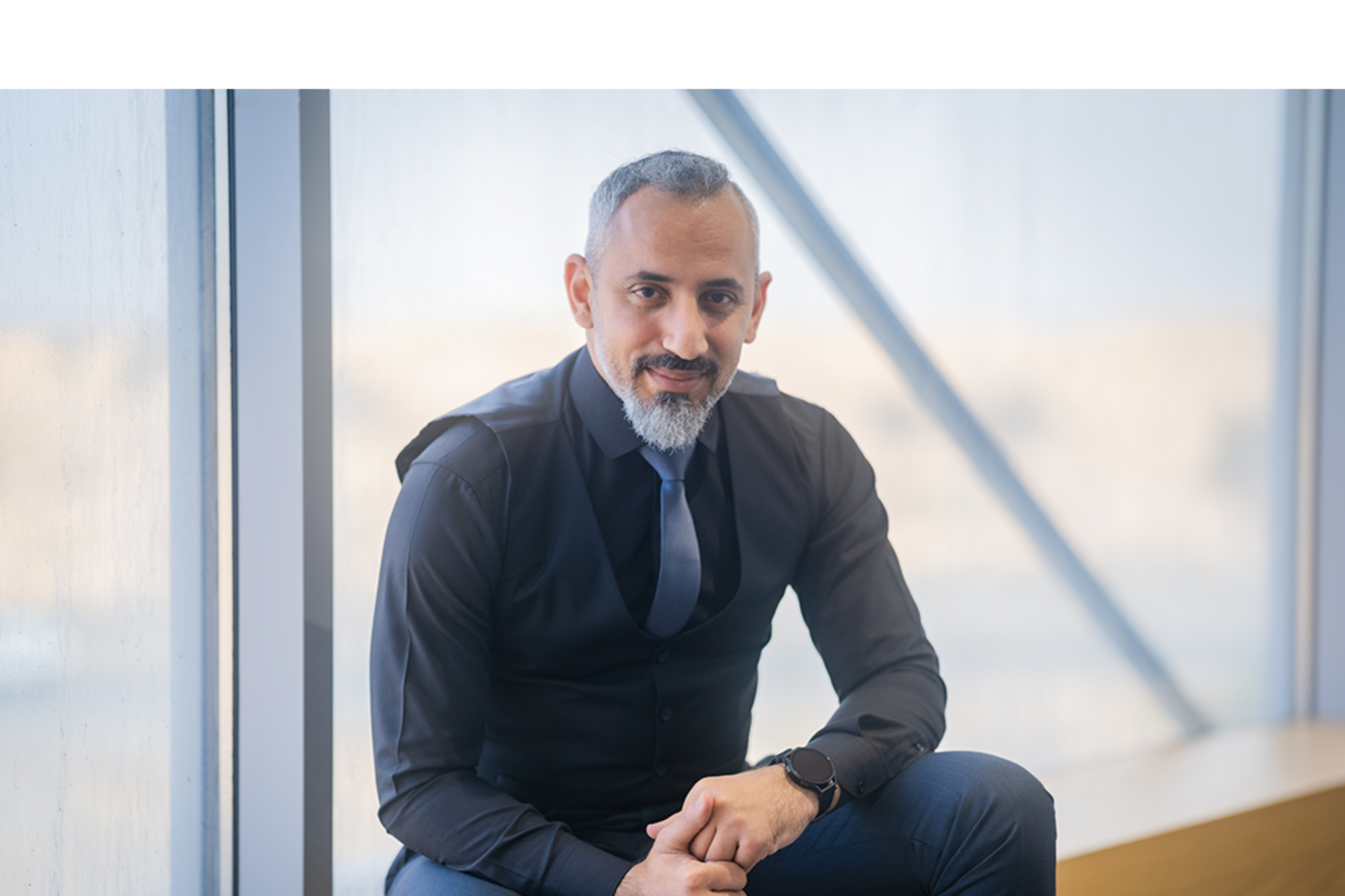Gamechangers: Zad Co-Founders Abdulrahman Alkharafi, Abdullah Al-Ansari, and Abdullah Al-Otaibi Meet the Kuwaiti entrepreneurs leading a new wave of fintech innovation in the GCC.
By Tamara Pupic
You're reading Entrepreneur Middle East, an international franchise of Entrepreneur Media.

Even before the COVID-19 pandemic struck the world in 2020, the global financial industry was ripe for more democratization through digital transformation and the influx of non-traditional players to the sector. Then, the fintech sector truly boomed, because the pandemic urged retail investors to turn to digital investment and trading platforms to, in most cases, build emergency funds, or to gain additional sources of income. These days, however, we are witnessing an economic reality that is less hospitable to fintechs. The reasons are plenty, with it including a difficult macroeconomic situation, rising inflation, or interest rate hikes.
Yet, the three co-founders of Kuwait-headquartered digital investment and trading platform Zad -Abdullah Al-Otaibi, Abdulrahman Alkharafi, and Abdullah Al-Ansari- have little against the ongoing economic turbulence in the world right now, because, in their opinion, it has brought a much needed market correction -and stability- to the fintech landscape.
That's why Al-Otaibi, who is the co- founder and Executive Vice President of Zad, as well as the Deputy Head of Fintech at Kuwait-founded public shareholding company, The Securities House, says that his startup "is leading the second wave of fintech companies," one that goes beyond the initial focus on low or zero-commission trading platforms. He adds, "We've recognized that today's investors, both seasoned and novices, need more than just low fees; they require comprehensive solutions that address their financial needs, and empower them with knowledge. Our mission is to provide a holistic Shariah-compliant approach to financial services that goes beyond mere transactions, and we do this by focusing on education, a frictionless user experience, and extensive local language content."
Now, Zad has been created by three industry veterans who share over 45 years of experience in the financial sector. Alkharafi was a leading figure in the transformation and privatization of Kuwait Stock Exchange, Alansari worked as an investment manager with the IFC World Bank Group, NBK Capital, and Credit Suisse in Kuwait, Washington, Geneva, and Dubai, while Alotaibi used to be a vital part of the institutional sales team at one of Kuwait's largest investment banks, NBK Capital. "Few fintech startup founders in the region can boast such a comprehensive track record, especially as ex-finance professionals with extensive startup and SME scaling experience," Alkharafi, who serves as the CEO of Zad and Head of Fintech at The Securities House, says. "This depth of knowledge makes us acutely aware of what investors need, and it equips us to successfully scale our services across multiple regions. It's this unique blend of experience that fuels our drive to bring innovation and growth to the fintech industry."
Related: Kuwait's Yumz Is On A Mission To Help Children Eat Healthier
The trio decided to enter the fintech space with an aim to use the convergence of finance and technology as a force for positive change. "We see fintech not just as a business, but as a means to enhance financial inclusion, promote ethical finance, and drive innovation in the industry," Al-Ansari, who serves as Executive Vice President of Zad and Deputy Head of Fintech at The Securities House, explains. "Additionally, we've learned that success in fintech requires a deep understanding of regulatory environments, customer needs, and emerging technologies. It demands agility and adaptability, as the landscape continues to evolve."
Related: The Recap: Leaders In Fintech Awards 2023
Zad belongs to the crop of digital fintech platforms that make investing, trading, and and robo-advisory accessible to a broader audience; however, this particular app takes it all a step further by offering not just a transactional platform, but a full-fledged ecosystem that empowers users with knowledge, transparency, and a seamless experience. "By focusing on education, partnering with universities, and eliminating hidden fees, we're not only shaping the future of fintech, but also democratizing access to financial opportunities for everyone," Al-Otaibi explains. "Our commitment is to provide full value, not just on the technical aspects, but also in terms of education and support, because we believe that everyone deserves a chance to thrive in the financial markets."
During the COVID-19 pandemic, the rise of amateur investors and traders resulted in instances of social media influencing investment decisions, as well as the increasing use of robo-advisers that would answer investment-related questions from all who lacked real knowledge in these areas. However, this new development has left novice investors and traders vulnerable to unregulated social media advice and false information. Against this backdrop, Zad puts more emphasis on education, as well as on investor security, because all its offerings are Shariah-approved. "An important pillar is, of course, that we are a Shariah-compliant company, and not that we are just offering Shariah-compliant services," Alkharafi notes. "It is enshrined in our founding documents, and we follow through on that in everything we do and offer."
To date, Zad has reached a user base of more than 20,000 individuals. "One of the most exciting aspects of our journey is the double-digit growth that we've been experiencing every month," Al-Ansari adds. "This sustained growth demonstrates the demand for our platform and services in the market. It's a clear indicator that we are not only meeting, but exceeding, the needs of our users. We are enthusiastic about the future, as we continue to innovate and provide value to our users as well as introduce new products." As such, Zad's list of upcoming products and features include a robo advisory service that will, starting from October 2023, provide Zad users with Shariah-compliant automated, algorithm-driven investment advice, tailored to their individual financial goals and risk tolerance. "It's a seamless way for both novice and experienced investors to access professional-grade investment strategies," Al-Otaibi adds.
Looking further ahead, the first quarter of 2024 will see Zad launching local GCC exchanges for equity trading that will enable its users to invest in a broader range of assets, while, later in the year, the Zad team is also set to introduce its Shariah-compliant options trading service. "This is a significant milestone, as it will provide our users with even more sophisticated investment tools while ensuring compliance with Islamic finance principles," Alkharafi says. Al-Ansari adds, "Beyond these key launches, we have a slate of other exciting products and features in the pipeline for 2024. While we can't reveal all the details just yet, you can expect these offerings to further enhance our user experience, broaden investment opportunities, and solidify our position as a fintech leader in our region."
Since raising a seed round backed by The Securities House in 2021, the Zad team has been careful about choosing only the right partners to fuel its growth. "Building strong relationships with investors who align with our values and vision is paramount," Al-Otaibi explains. "As we move forward, we remain committed to forging strategic partnerships with investors who share our passion for Shariah-compliant finance, and our dedication to creating a fintech platform that adds genuine value to our users and the broader financial community. These partnerships will continue to be instrumental as we navigate future funding rounds and pursue our global vision."
Related: Making Change Happen: H.E. Sheikha Intisar AlSabah
As for the fintech ecosystem in Kuwait and the GCC region, Alkharafi believes that the sector will continue to experience robust growth and innovation. "Governments in the GCC, including Kuwait, have been actively promoting fintech as part of their economic diversification efforts," he says. "Initiatives such as regulatory reforms and the establishment of fintech hubs are aimed at fostering innovation in the sector. Given the prevalence of Islamic finance in the region, there was a focus on developing fintech solutions that complied with Shariah principles. This included Islamic digital banks and fintech platforms offering Shariah-compliant financial products." Al-Ansari echoes this sentiment, stating, "The fintech sector is expected to continue its growth trajectory, driven by increasing adoption of digital financial services, investment from venture capital firms, and expanding global reach."
'TREP TALK: The co-founders of Zad share their tips for fintech entrepreneurs
Keep an eye on the regulatory landscape
"Gain a deep understanding of the regulatory environment in the regions where you operate. Compliance is crucial in fintech, so staying informed about evolving regulations, and maintaining a strong compliance framework, is vital."
Focus on user experience
"Prioritize user experience and design. Fintech products should be intuitive, user-friendly, and address specific pain points to attract and retain customers. A seamless and pleasant user journey can set you apart in a competitive market."
Trust is key in this industry
"Establish trust with your users by prioritizing data security and privacy. Invest in robust cybersecurity measures, and communicate your commitment to protecting customer data. Trust is a cornerstone of the fintech industry, and it's essential for building a loyal customer base."













